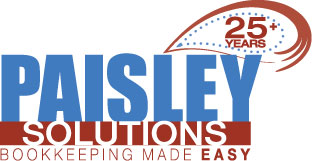Top Bookkeeping Tips for Small Medical Practices & Doctor Offices
When people feel sick or experience health issues, they don’t seek treatment from just anyone. They turn to healthcare professionals who have the necessary knowledge and resources to properly diagnose and treat each individual patient. Unfortunately, healthcare professionals don’t have the same expertise when it comes to bookkeeping for medical practices, doctor’s offices, and small clinics. Navigating the world of financial statements, payroll management and budgeting can be overwhelming – even for healthcare professionals who are familiar with those complexities.
To help your private medical practice or independent doctor’s office provide the best patient care without losing money, we’ve put together a list of helpful tips for better bookkeeping practices.
1. Keep Accurate Records
If tracking medical billing and insurance claims wasn’t difficult enough, bookkeeping for medical practices and doctor’s offices also involves documenting a great deal of additional financial information such as medical equipment inventory, laboratory costs, and general office overhead.
To successfully keep up with all monthly expenditures and profits, you need to keep accurate, detailed, and organized records of every business transaction. By recording this information in your bookkeeping software, saving all receipts, and cross-checking bank statements, you will be able to avoid accounting headaches and prevent lost revenue.
2. Practice Proper Payroll Management
There’s no such thing as a slow day at medical offices and private practices. Typical daily schedules are often filled with patient appointments. Then there are the days when staff members are out of the office, last-minute appointments are accepted, and medical emergencies walk through the door. Not only do these scenarios disrupt routine daily schedules, but they also lead to complicated payroll issues.
To avoid poor payroll processing, medical practices can invest in a software system to better manage their office payroll. This type of software not only allows operators to accurately record and track daily hours, paid time off, holiday pay, and overtime hours, it also easily prepares and dispenses staff payments. A skilled bookkeeper can help you set up your payroll management system and process changes such as salaries or deductions so that you can spend more time focused on patient care.
3. Don’t Defer Taxes
When medical practices are experiencing profit loss or cash flow struggles, they sometimes defer taxes as a way to access additional money for operations. While this does temporarily relieve the situation, it can lead to bookkeeping errors that result in penalties for delayed tax payments. By paying and recording taxes immediately, your practice will not only avoid errors and penalties but will also help avoid a large lump sum tax bill at the end of the year.
While these tips for medical practice bookkeeping may help you avoid some of the financial challenges your industry faces, there is one last tip that helps more than any: hire bookkeeping experts like the team at Paisley Solutions.
We understand that bookkeeping practices are not the same across all industries. We are experienced with the complexities of bookkeeping for medical practices and doctor’s offices, and we are here to help with accurate financial reporting for your CPA, payroll management, budgeting, and much more.
To learn more about our bookkeeping services, please contact us today for a free consultation!
